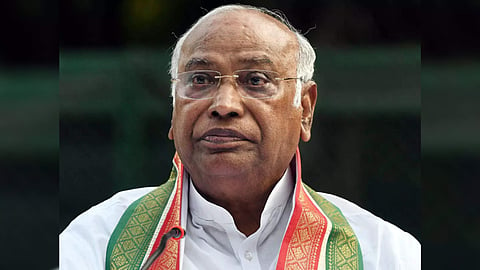

The Oxford dictionary defines the verb ‘anthropomorphise’ as attributing human characteristics or behaviour to a god, animal, or object. For millennia, storytellers, politicians and orators have relied on it to push forth their narratives, and in the process, endearing some animals to us, while imbuing some with less than desirable traits.
From the ancient Jataka and Panchatantra tales, to the contemporary George Orwell’s Animal Farm, where a group of domesticated animals rise against their human owners; or Art Spiegelman’s Holocaust memoir Maus, a graphic novel which portrayed the Jews as mice, and the Nazis as cats – the episodes of animals representing the human condition have a glorious history.
However, such histories are at the risk of being tainted, thanks to some inglorious, crass remarks passed by members of the Indian polity.
Earlier this week, Congress Chief Mallikarjun Kharge, while addressing a rally in Alwar, Rajasthan during the Bharat Jodo Yatra said “not even a dog of the BJP lost its life for the country” while Congress leaders made the ultimate sacrifice and helped India attain Independence. He also called out the saffron party for speaking like a lion, but acting like a mouse. As expected, the comments set off a war of words in the Parliament, and on Twitter.
As it turns out, exchanging animal epithets is nothing new as far as the world of national and global politics is concerned. Former US President Donald Trump has been shamed on numerous occasions for using unparliamentary language in his public speeches.
As part of his vicious put-down of adversaries, Trump has referred to everyone from former White House staffer Omarosa Manigault Newman, to politicians Mitt Romney, Steve Bannon, Marco Rubio, and FBI former director James Comey as dogs.
In the Indian subcontinent, Pakistani politicians Aimal Wali Khan of the Awami National Party, and Imran Khan of the Pakistan Tehreek-e-Insaf have been trading zoological insults for a while now. The former refers to Imran as a langur, whereas the PTI chief opted to call Khan melo or a bear.
Islamabad, of course, has bitter memories regarding such nomenclatures. Four decades ago, it witnessed the aftermath of Operation Midnight Jackal, the first of two major political scandals that emerged during the first term of late PM Benazir Bhutto in 1988–89. It involved a plot by the ISI’s Internal Wing to help a vote of no-confidence movement in the Parliament to make way for new elections favouring conservative politicians.
Interestingly, PETA had come up with a glossary of words last year, offering alternatives to frequently used animal epithets. The idea was to get people to abandon ‘speciesist’ and ‘supremacist’ use of language.
For instance, instead of referring to someone as chicken, one could say coward; rat could be substituted with snitch; pig with repulsive; and sloth with lazy. The list did not contain alternatives to badgering, parroting, being foxy or catty.
Jokes and jibes aside, parliamentary language is there for a reason. A wrong word at the wrong time can mean the difference between steering a political career, versus derailing it.
New Zealand PM Jacinda Ardern learnt this the hard way recently when a hot mic caught her muttering ‘arrogant p****’ under her breath in reference to an opposition leader during a debate.
Politicians are the elected representatives of a nation, and are expected to uphold the highest standards when it comes to the conduct of discourse in a civil manner. And that’s exactly how the tone and tenor of the conversations should be as well – civil.
Visit news.dtnext.in to explore our interactive epaper!
Download the DT Next app for more exciting features!
Click here for iOS
Click here for Android